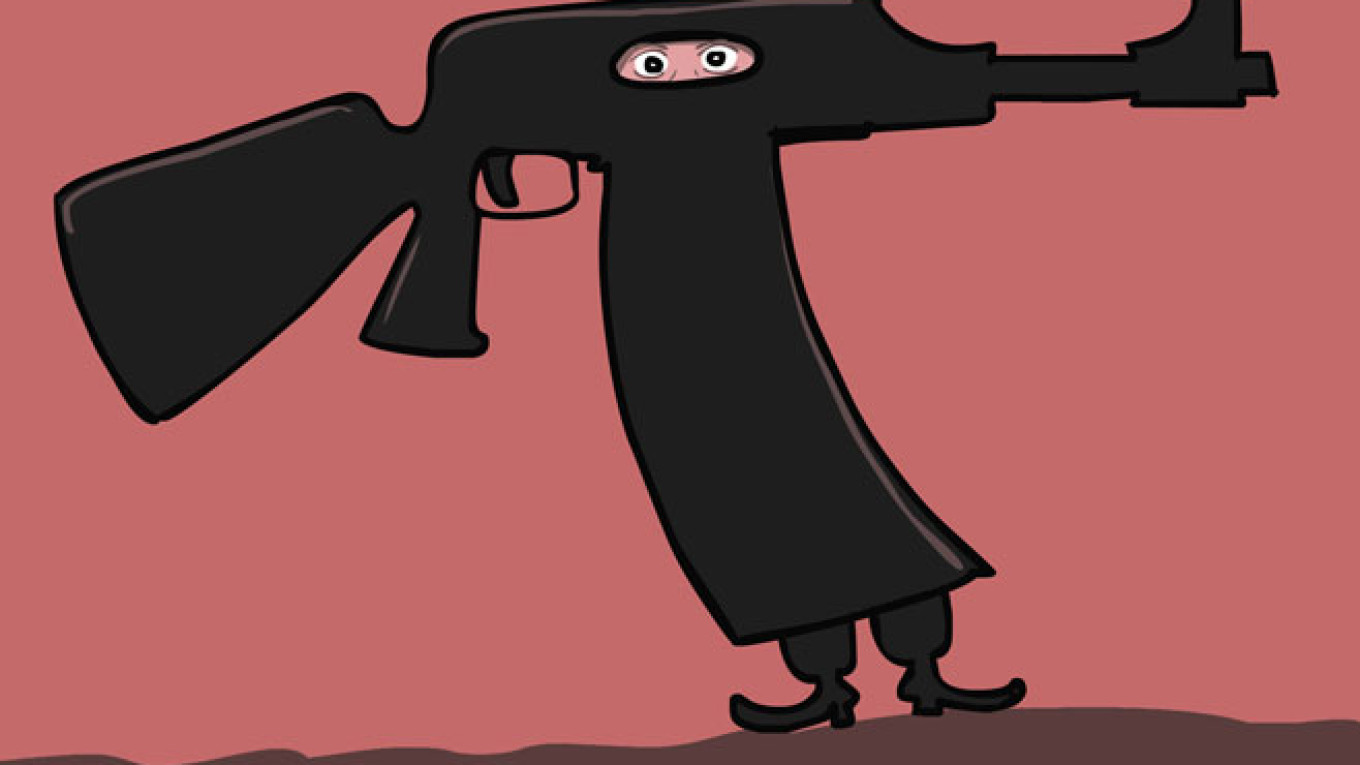It is impossible to say with certainty how many people holding Russian passports now fight for the Islamic State. This is because such “volunteers” hail not only from Russia itself, but also from former Soviet republics and communities of North Caucasus refugees now living in Europe. What’s more, once they join up with IS in, say, Syria or Iraq, they do not always reveal their nationality immediately, hoping to protect loved ones back in Russia from negative repercussions.
What is interesting in this regard is the fact that the Russian Foreign Ministry and Federal Security Service offer different estimates of their numbers. For example, the Foreign Ministry reported that approximately 800 Russian citizens were fighting with IS in early 2015, increasing that number only modestly in subsequent months.
By contrast, the FSB kicked off the year with an estimate of more than double that figure, 1,700 Russians, and by June agency head Alexander Bortnikov was already quoting a figure of closer to 5,000.
That discrepancy probably stems from each agency?€™s differing goals. The Foreign Ministry probably tends to underestimate their numbers so as to discourage the domestic and global press from attributing a Russian role to IS attacks.
However, the FSB reports larger numbers, first in order to show the scale of the Islamist underground threat to Russia that the agency must battle, and second to prove that the FSB has made it so difficult for the terrorists to operate on Russian territory that they must go abroad to fight with the IS instead.
These ?€?volunteers?€? leave their homes in different countries — including Europe and the United States ?€” to join the ranks of terrorists in Syria and Iraq primarily because they have grown disillusioned by the socio-political, and to some extent economic conditions at home, making them more susceptible to the propaganda of radical Islam.
Whereas Muslim immigrants in Europe have difficulty integrating into what is for them a very unfamiliar society, the Muslims in Russia face serious difficulties at home.
This is especially true in the North Caucasus, where most leaders are authoritarian, clans struggle for dominance according to the principle of ?€?For my friends, everything, for others, the law?€? and where nearly total corruption and impunity before the law characterize almost everyone with close ties to the ruling authorities.
Such conditions cannot but generate feelings of frustration and protest, especially among young people. Up until 2014, such youth would sometimes join the local underground, risking death if caught in one of the special operations the authorities regularly conduct, and automatically condemning their relatives to the ?€?black list?€? on file with the local authorities. But now they can join the IS in Syria or Iraq to fight for ?€?Islamist-style justice.?€?
Radical Muslim recruiters are always ready to help them ?€?quietly?€? disappear so as to escape notice by relatives and officials, often to resurface later in a designated location and bearing a new name. As a result, their relatives, although troubled, live in relative safety because the young man in question did not join the underground.
As for the newly minted recruits, they gain experience in the global struggle as it unfolds in the Middle East, preparing them to later apply those deadly skills in their homeland. In other words, the North Caucasus underground is losing its potential recruits, rendering it less dangerous for the local authorities.
Human Rights Watch mentions another contributing factor ?€” namely, the frequent use of unjustified and excessive force by Russian security forces in ?€?cleansing?€? population centers in the North Caucasus. The destruction of homes, creation of special detention zones and torture described by human rights activists have prompted many young people to seek revenge. They either escape into the woods to prepare for their militant return, or else join the IS.
Another method used for finding recruits in Russia and Europe is to find young Muslims eager to learn more about their faith and gradually transform them from moderates into radicals. This is most often accomplished with the help of mentors who are either part of their social group or who correspond with them via the Internet.
That is how Moscow State University student Varvara Karaulova ended up in Turkey on her way to joining the IS where she was intercepted by that country?€™s intelligence agencies.
And although Russian intelligence agencies might find this type of recruit more or less understandable, there is a second type that is more perplexing and that poses a growing threat to Russia.
These are usually young people from any of Russia?€™s regions that are just learning about Islam for the first time, and who are at risk of accepting this distorted, radicalized version of the religion as correct. Once those individuals experience personal difficulties, they might become tempted by the radicals?€™ slogan ?€?Islam is the solution?€? and start on the path toward the IS.
Alexander Shumilin is the director of the Center for the Analysis of Middle East Conflicts with the Institute for U.S. and Canadian Studies at the Russian Academy of Sciences.
A Message from The Moscow Times:
Dear readers,
We are facing unprecedented challenges. Russia's Prosecutor General's Office has designated The Moscow Times as an "undesirable" organization, criminalizing our work and putting our staff at risk of prosecution. This follows our earlier unjust labeling as a "foreign agent."
These actions are direct attempts to silence independent journalism in Russia. The authorities claim our work "discredits the decisions of the Russian leadership." We see things differently: we strive to provide accurate, unbiased reporting on Russia.
We, the journalists of The Moscow Times, refuse to be silenced. But to continue our work, we need your help.
Your support, no matter how small, makes a world of difference. If you can, please support us monthly starting from just $2. It's quick to set up, and every contribution makes a significant impact.
By supporting The Moscow Times, you're defending open, independent journalism in the face of repression. Thank you for standing with us.
Remind me later.


